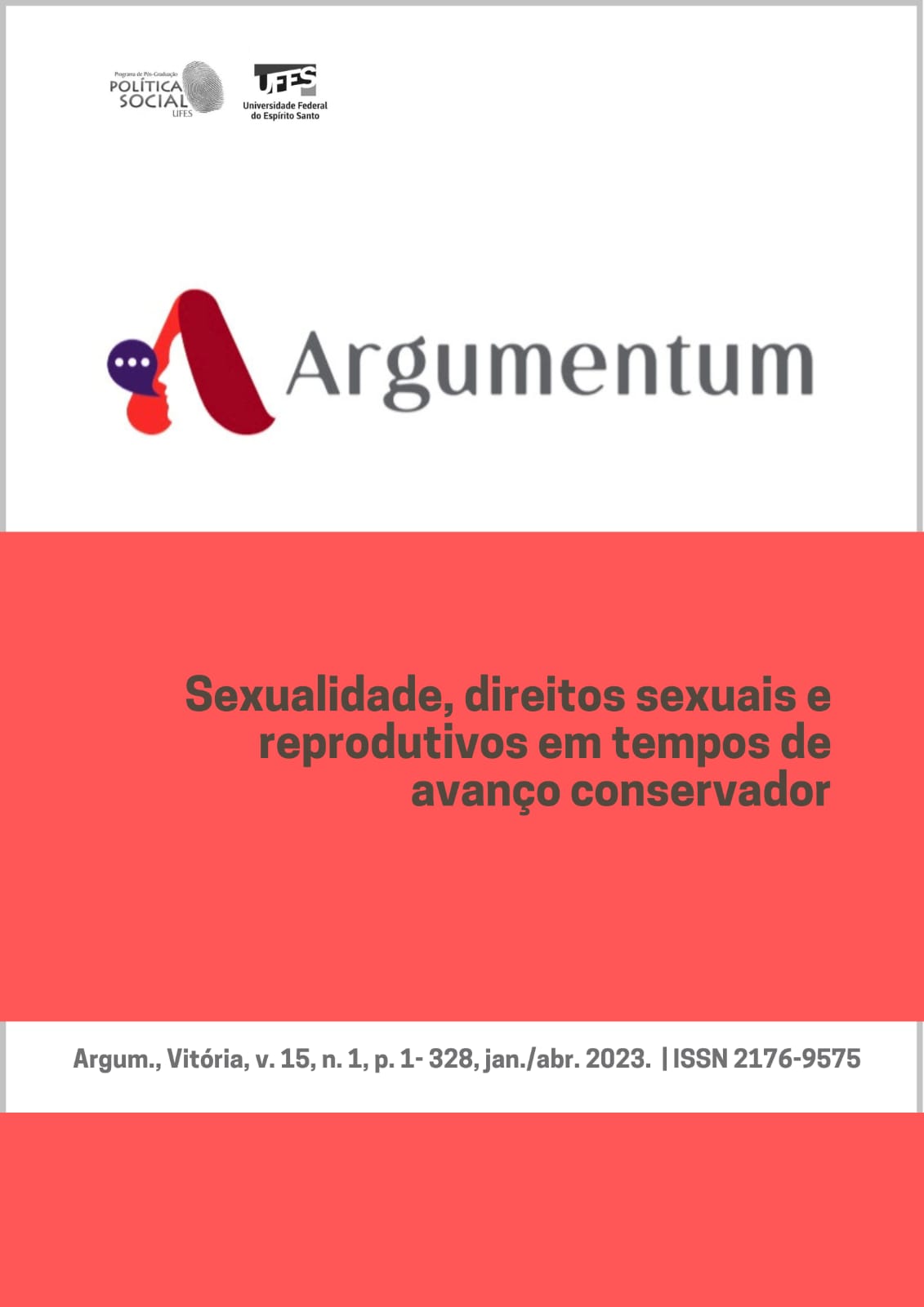Uma menina na casa: estupro, aborto e a pandemia de COVID-19 no Brasil
DOI:
https://doi.org/10.47456/argumentum.v15i1.40646Resumo
À medida que a pandemia do COVID-19 atingiu o mundo, muitos atores globais da saúde conceberam o lar como um espaço de proteção por excelência e interpretaram as vidas humanas como corpos biológicos abstratos sob o cerco do vírus. Diante das ordens de ficar em casa, uma menina de dez anos que enfrentava uma intensificação da violência sexual doméstica emergiu de sua existência anônima para buscar um aborto, quebrando essa imposição biológica ao exigir outro tipo de corpo habitável. Este ensaio aborda etnograficamente sua jornada para fora do confinamento pandêmico, a travessia de seu corpo para novas zonas de inteligibilidade e a interface entre sua história, o público e a lei na determinação de sua “cidadania biológica”. Na interseção desses atores, novas definições de pertencimento e sobrevivência foram colocadas e contestadas no contexto da política pandêmica.
Publicado
Edição
Seção
Licença
Termo de Cessão de Direitos Autorais
Como condição para a submissão, os autores devem concordar com o Termo de Cessão de Direitos Autorais, marcando a caixa de seleção após a leitura das cláusulas.
O(s) autor(es) doravante designado(s) CEDENTE, por meio desta, cede e transfere, de forma gratuita, a propriedade dos direitos autorais relativos à revista Argumentum, do Programa de Pós-graduação em Política Social, Universidade Federal do Espírito Santo - Av. Fernando Ferrari, 514 - Goiabeiras 29075-910, Vitória (Brasil) doravante designada CESSIONÁRIA, nas condições descritas a seguir:
1. O CEDENTE declara que é (são) autor(es) e titular(es) da propriedade dos direitos autorais da OBRA submetida.
2. O CEDENTE declara que a OBRA não infringe direitos autorais e/ou outros direitos de propriedade de terceiros, que a divulgação de imagens (caso as mesmas existam) foi autorizada e que assume integral responsabilidade moral e/ou patrimonial, pelo seu conteúdo, perante terceiros.
3. O CEDENTE cede e transfere todos os direitos autorais relativos à OBRA à CESSIONÁRIA, especialmente os direitos de edição, de publicação, de tradução para outro idioma e de reprodução por qualquer processo ou técnica. A CESSIONÁRIA passa a ser proprietária exclusiva dos direitos referentes à OBRA, sendo vedada qualquer reprodução, total ou parcial, em qualquer outro meio de divulgação, impresso ou eletrônico, sem que haja prévia autorização escrita por parte da CESSIONÁRIA.
4. A cessão é gratuita e, portanto, não haverá qualquer tipo de remuneração pela utilização da OBRA pela CESSIONÁRIA.

